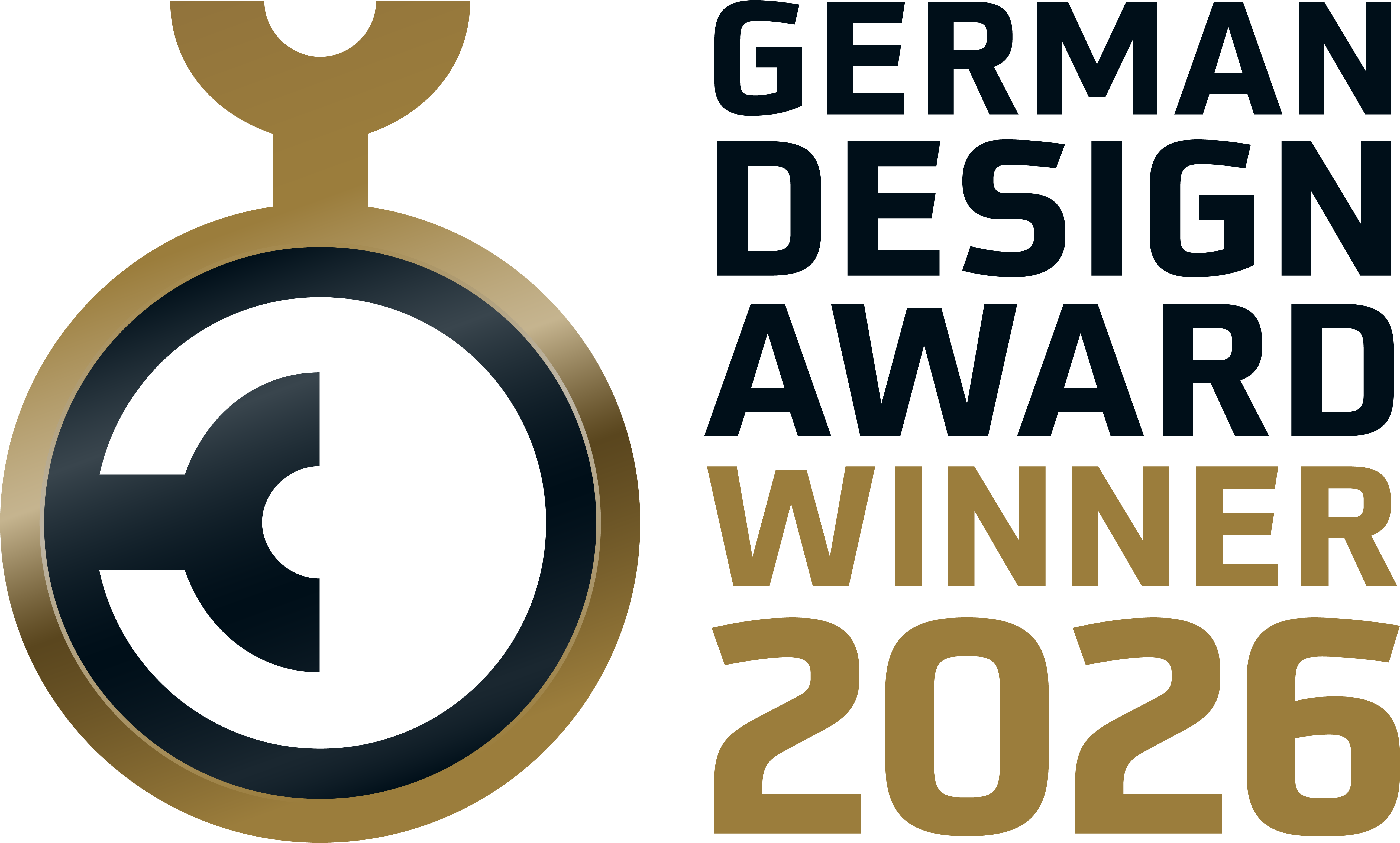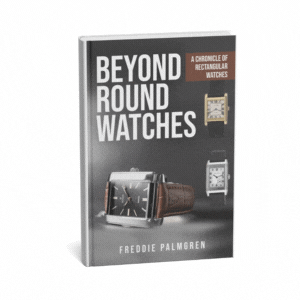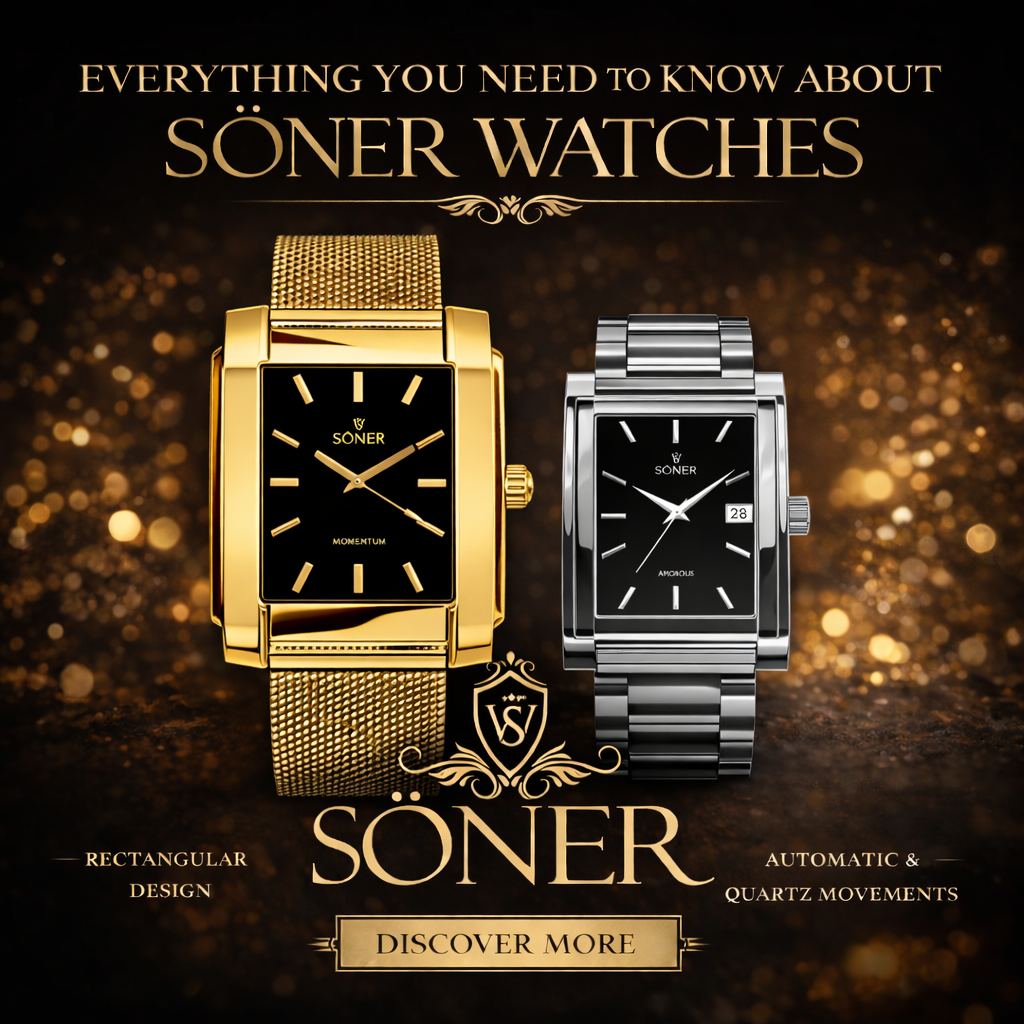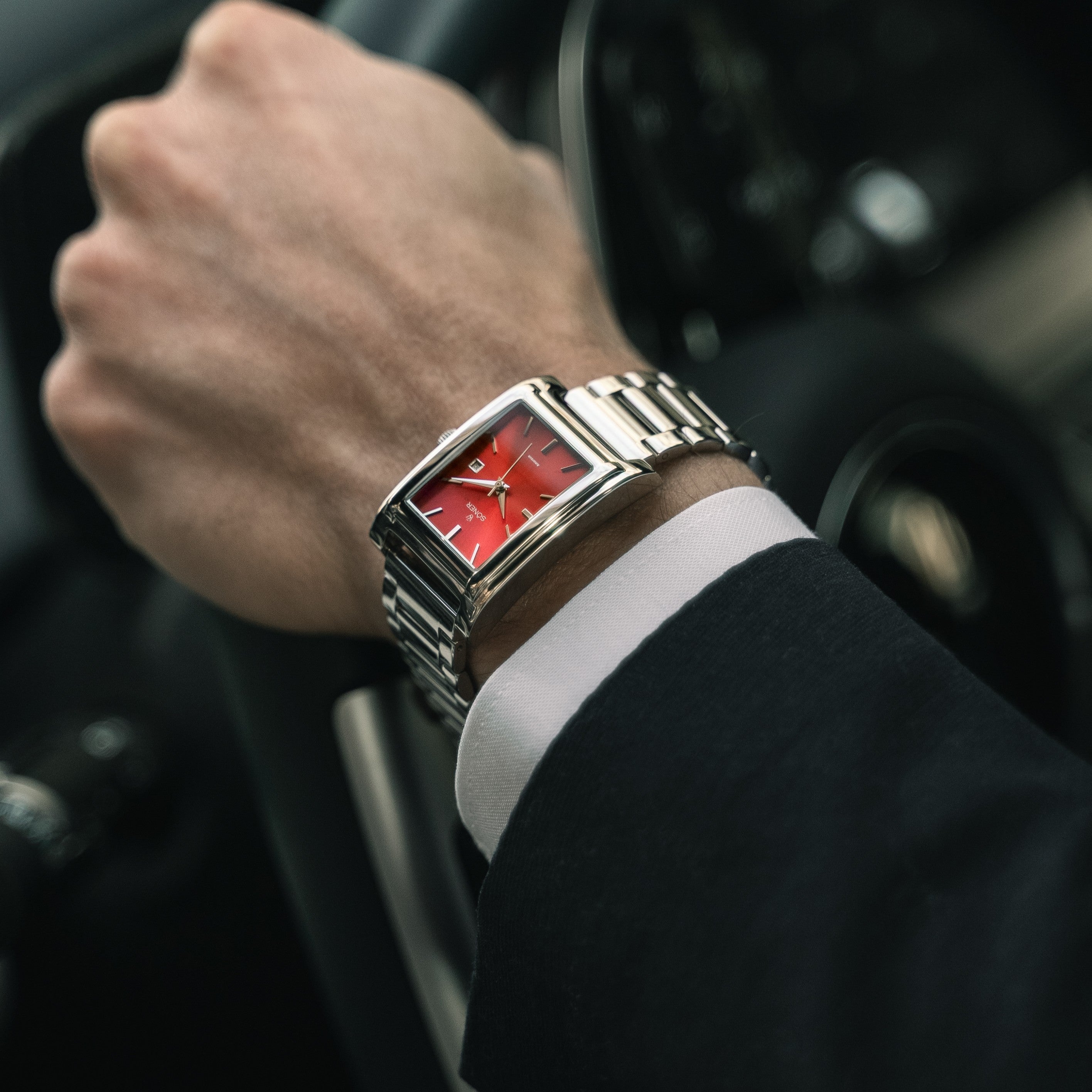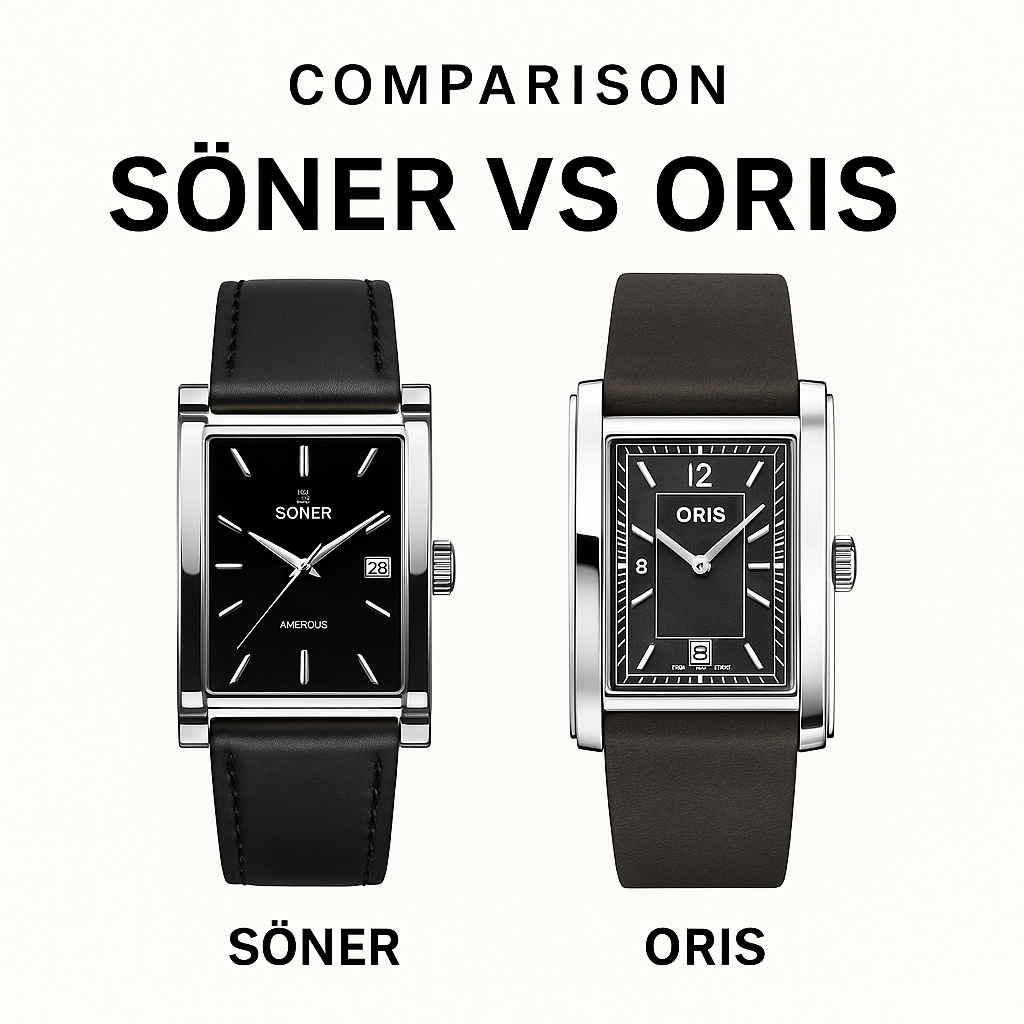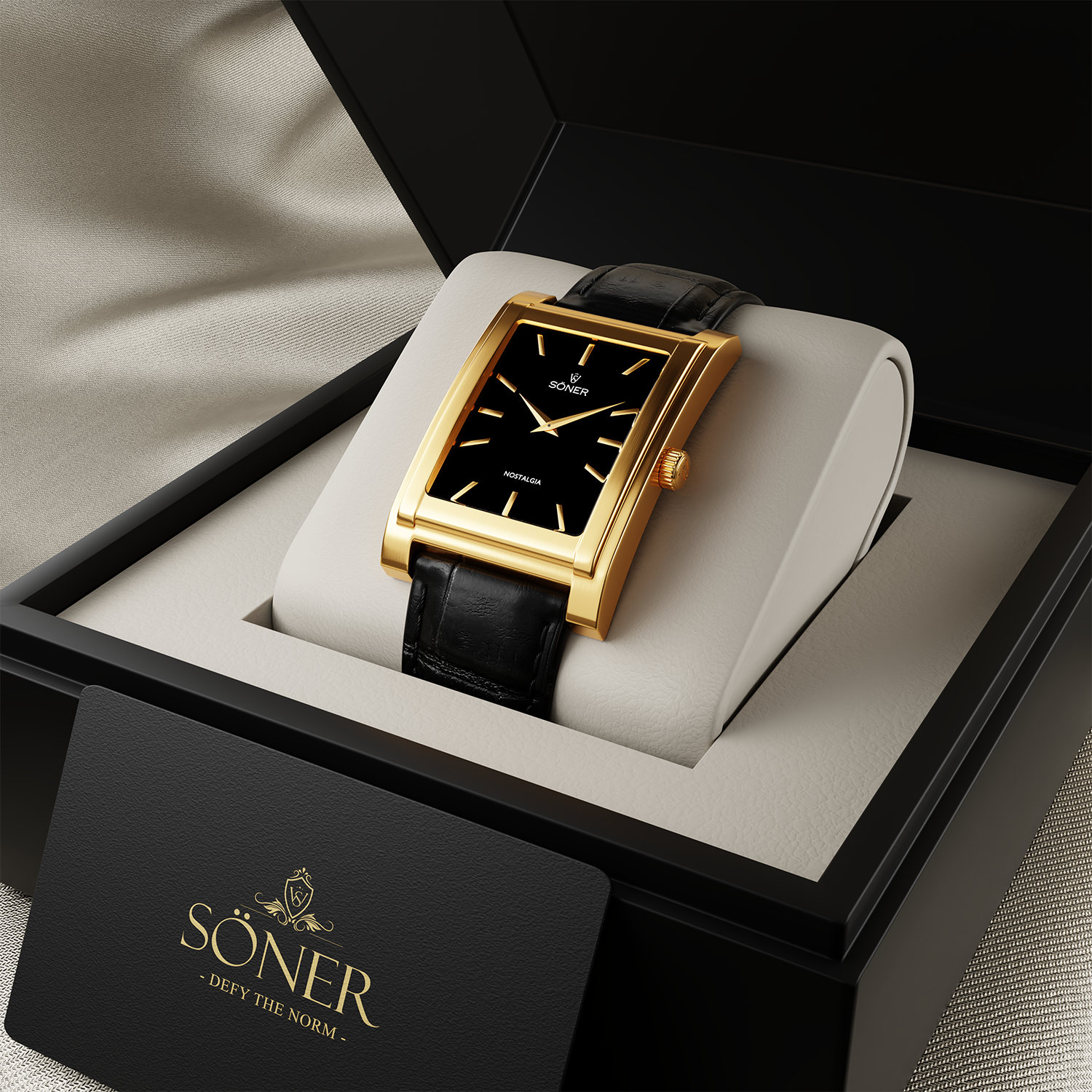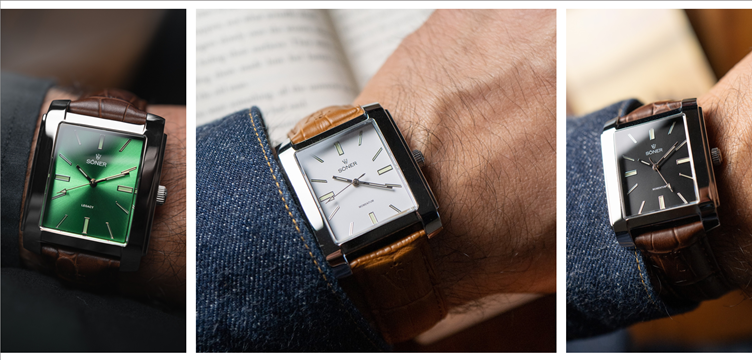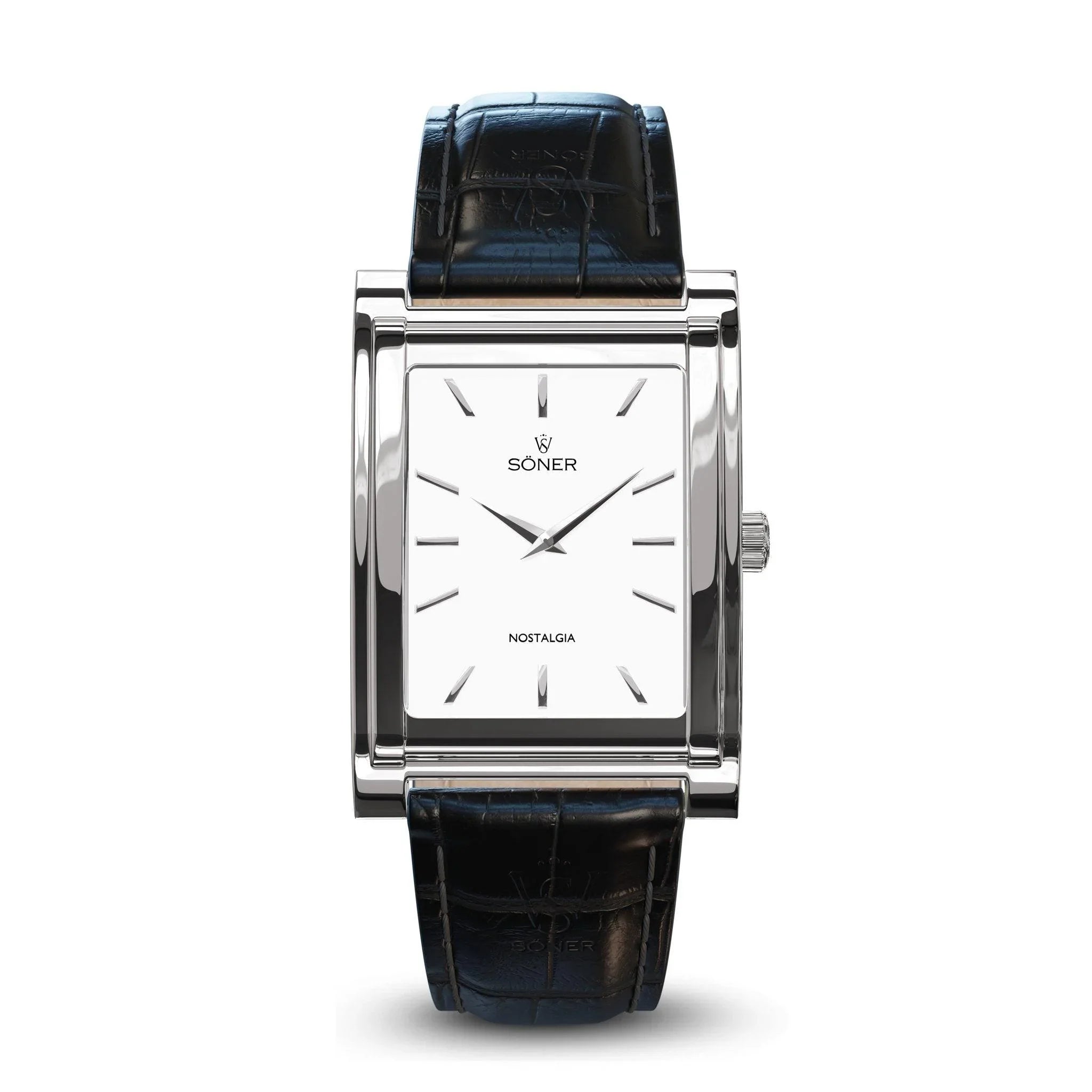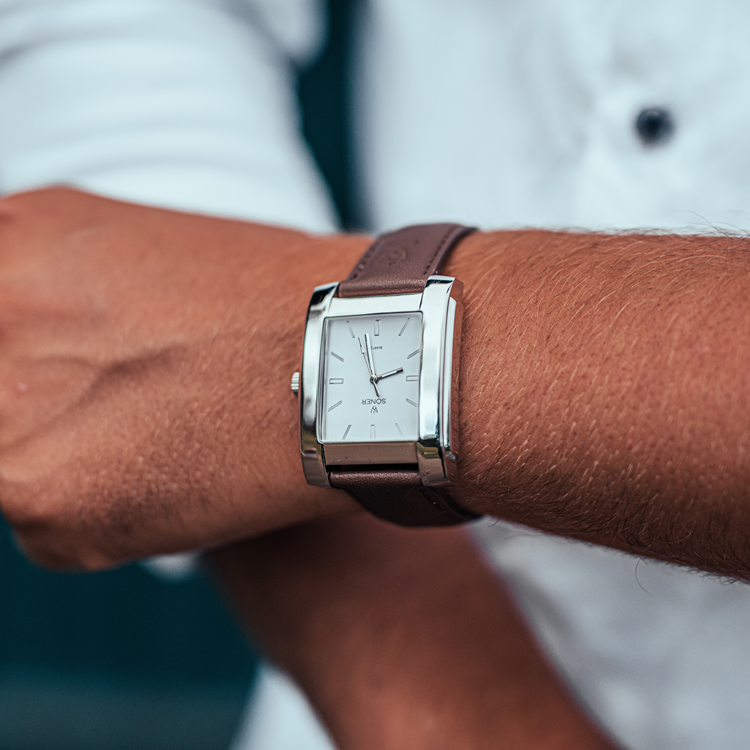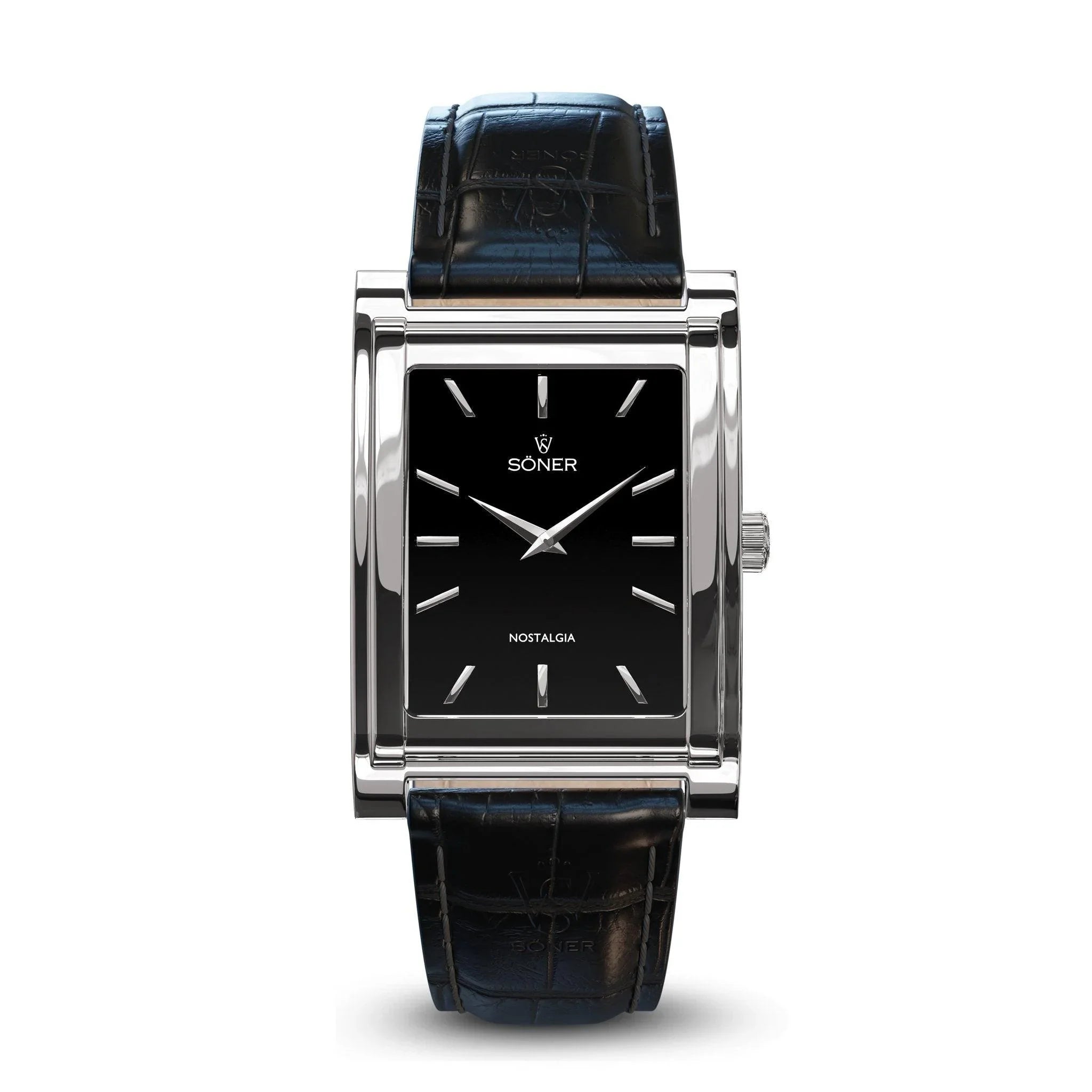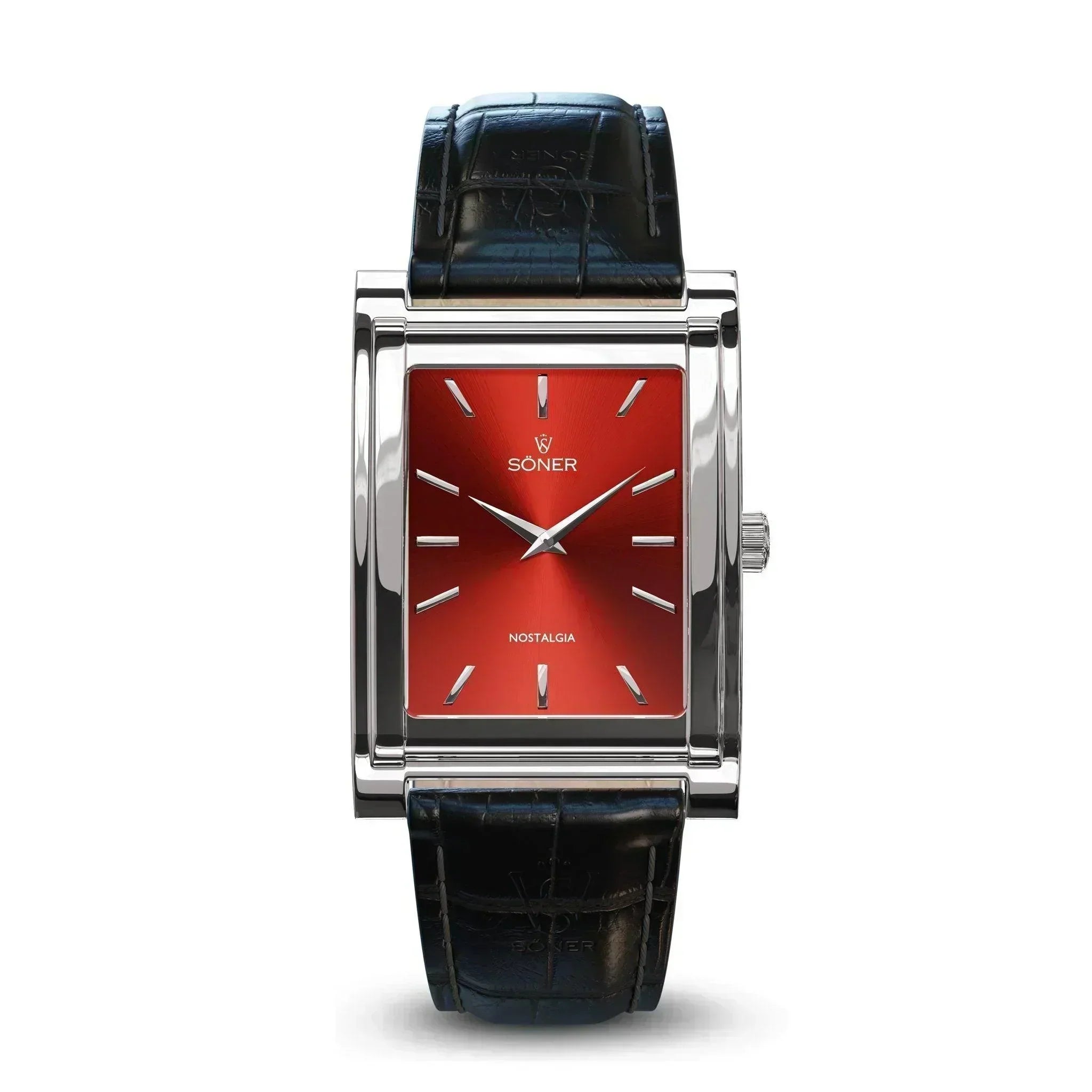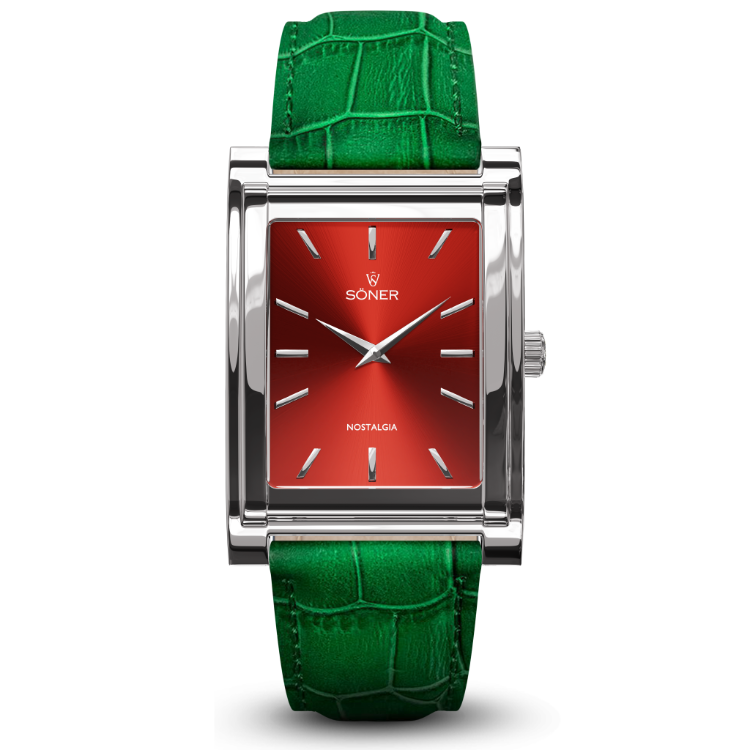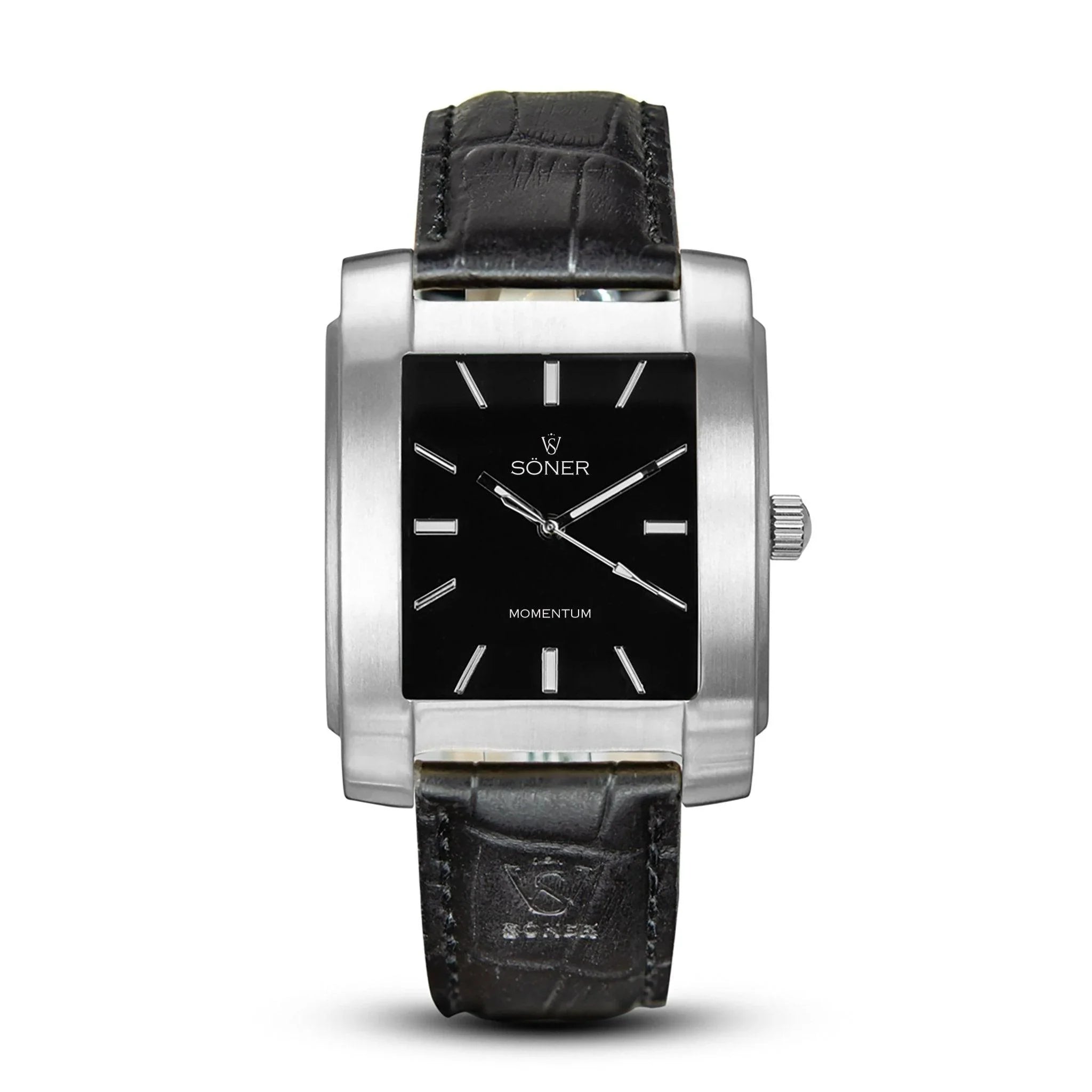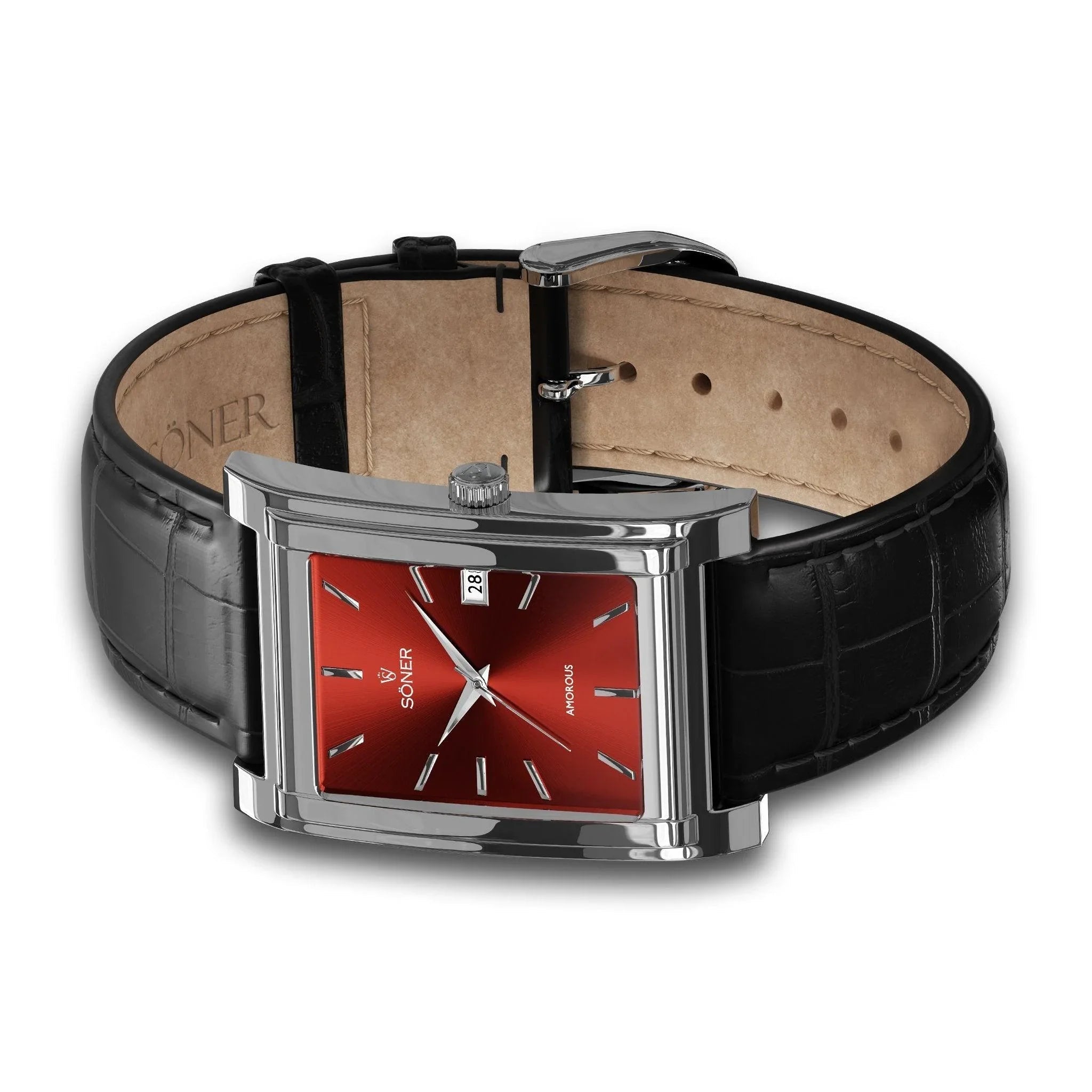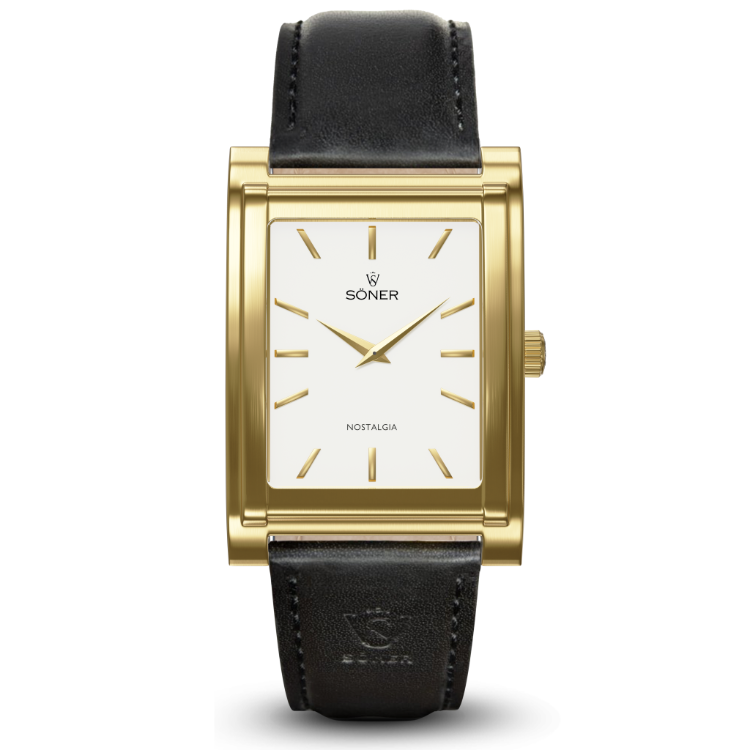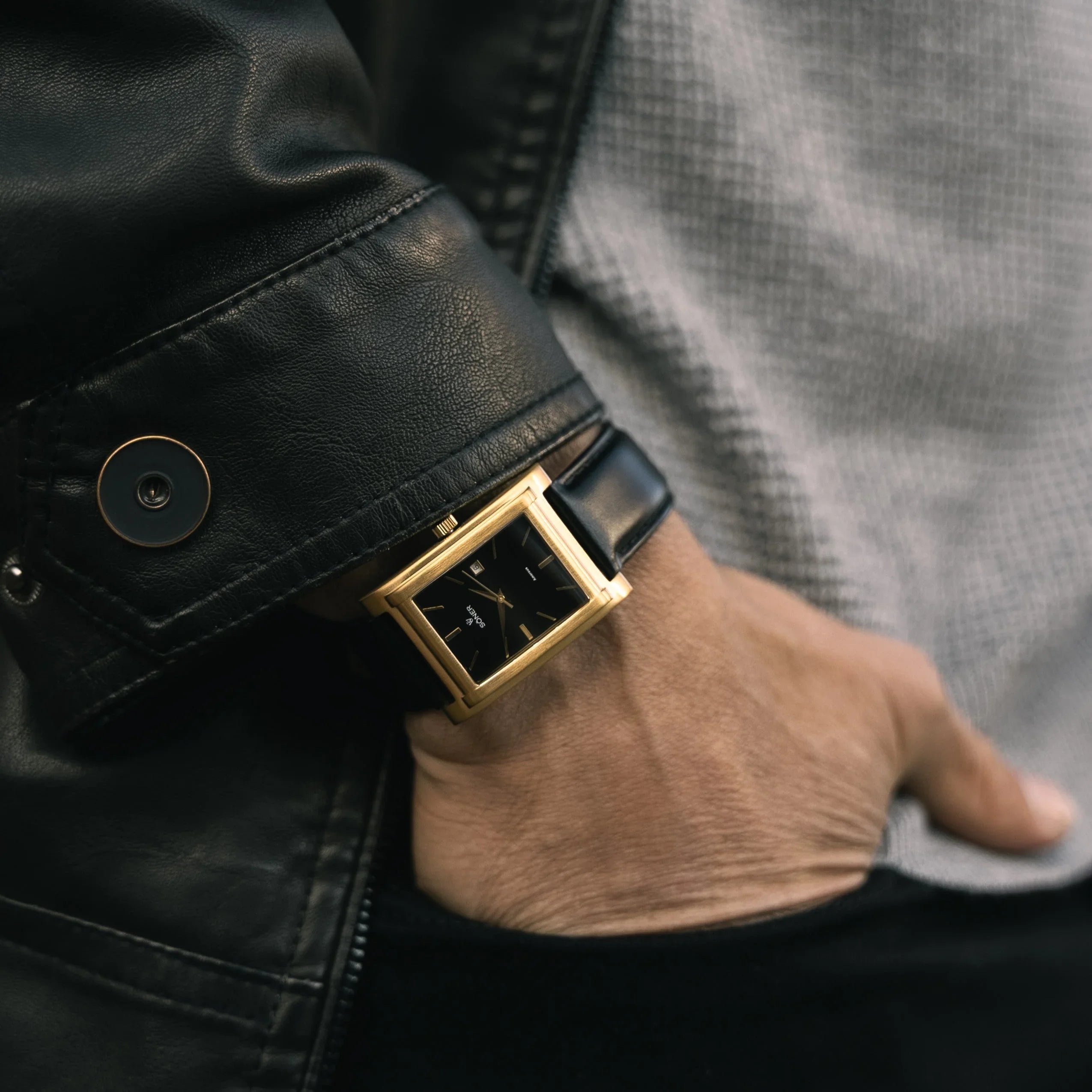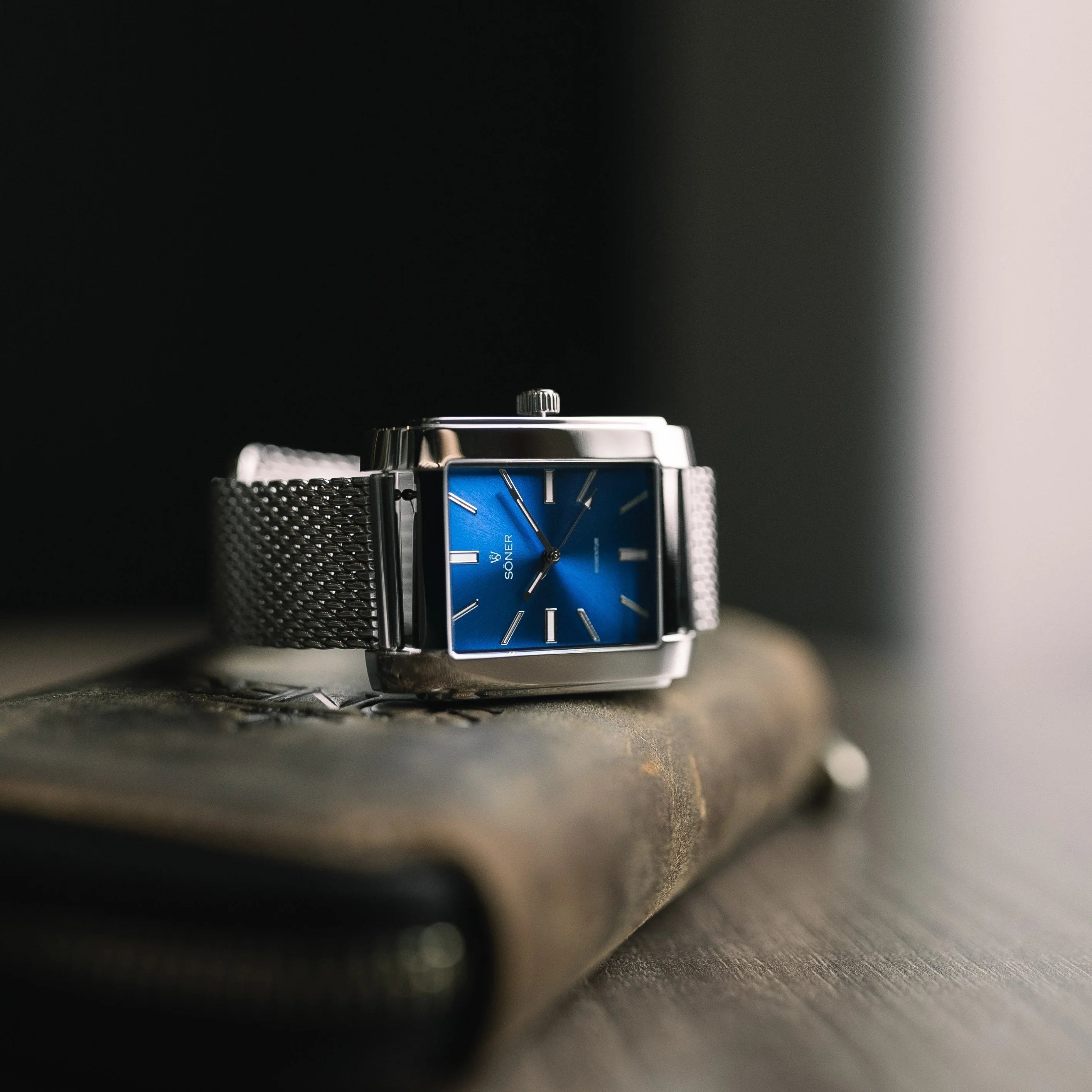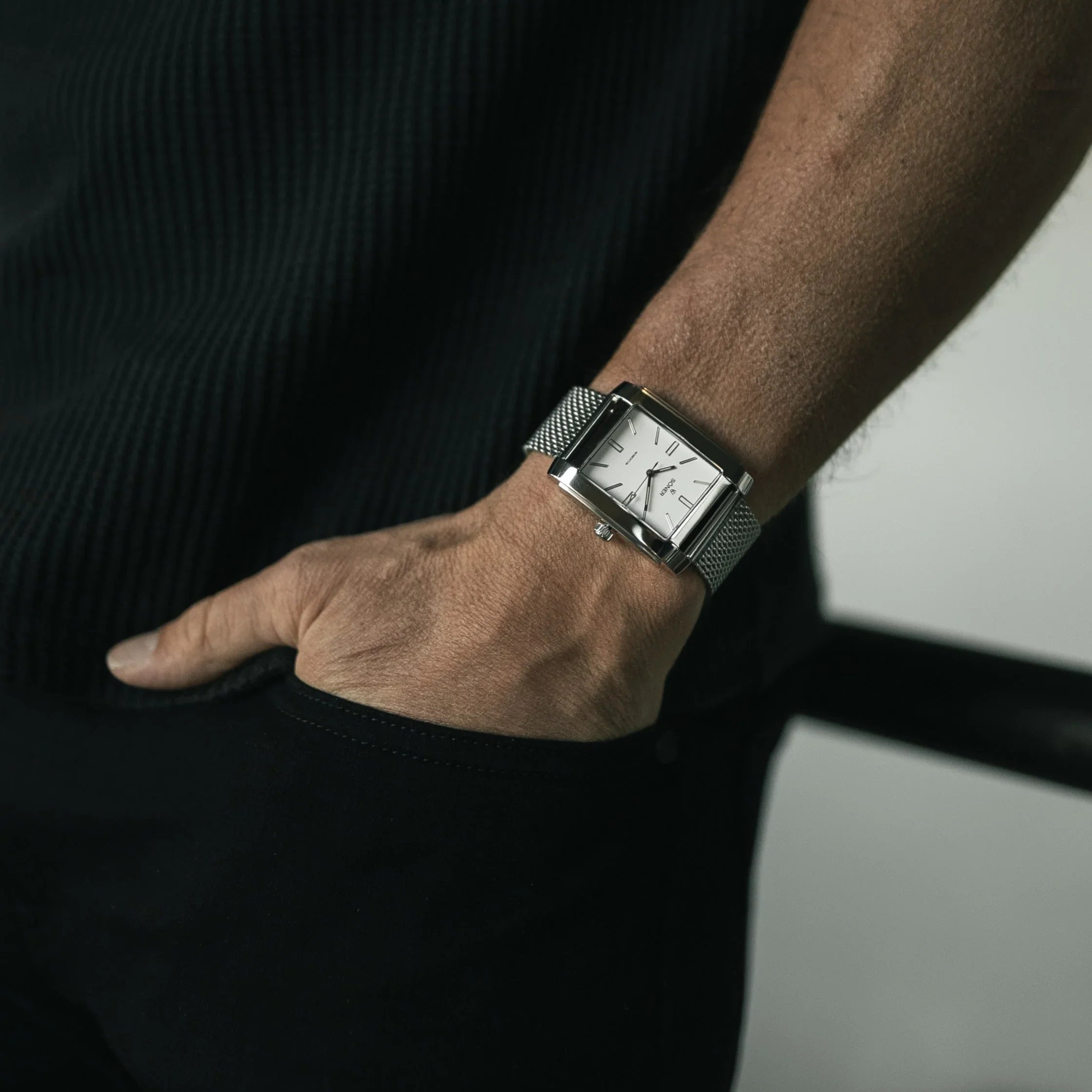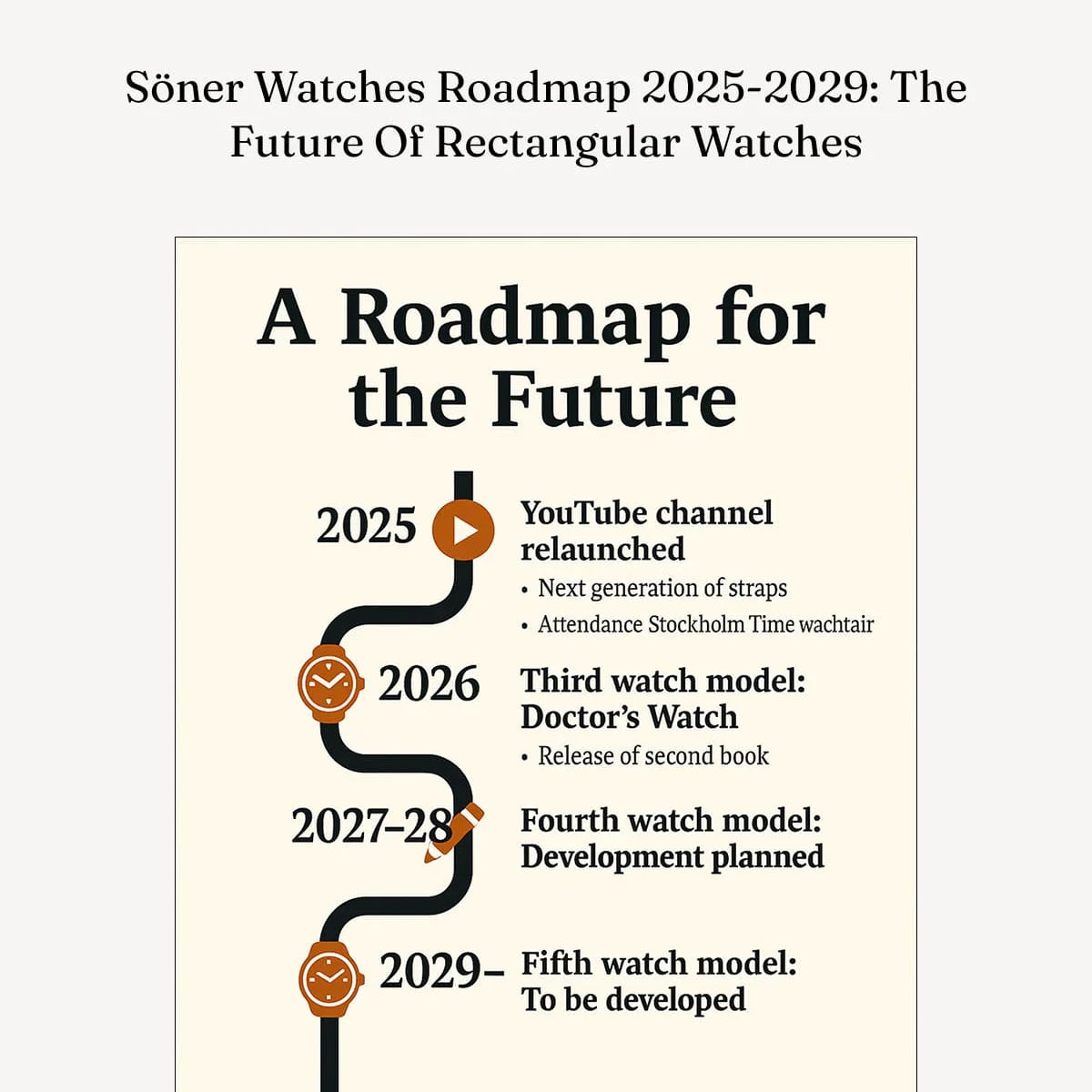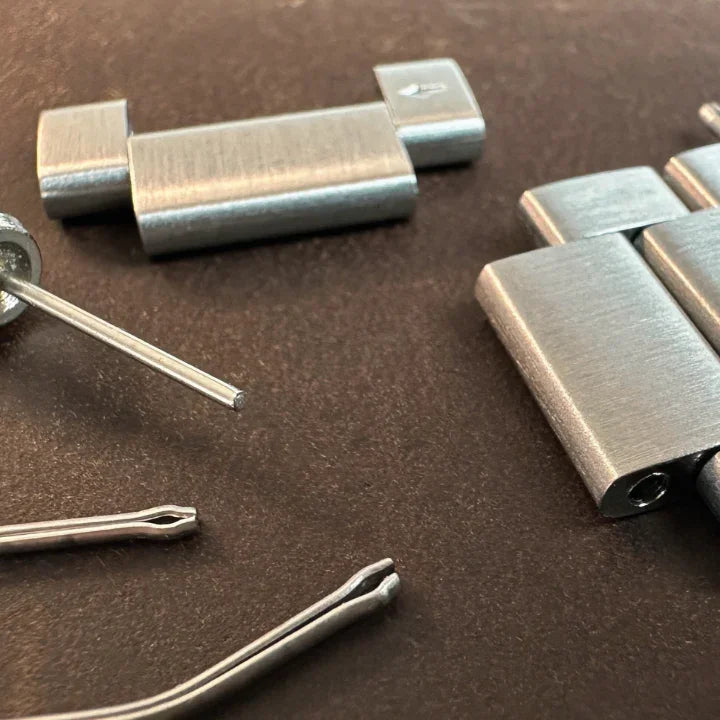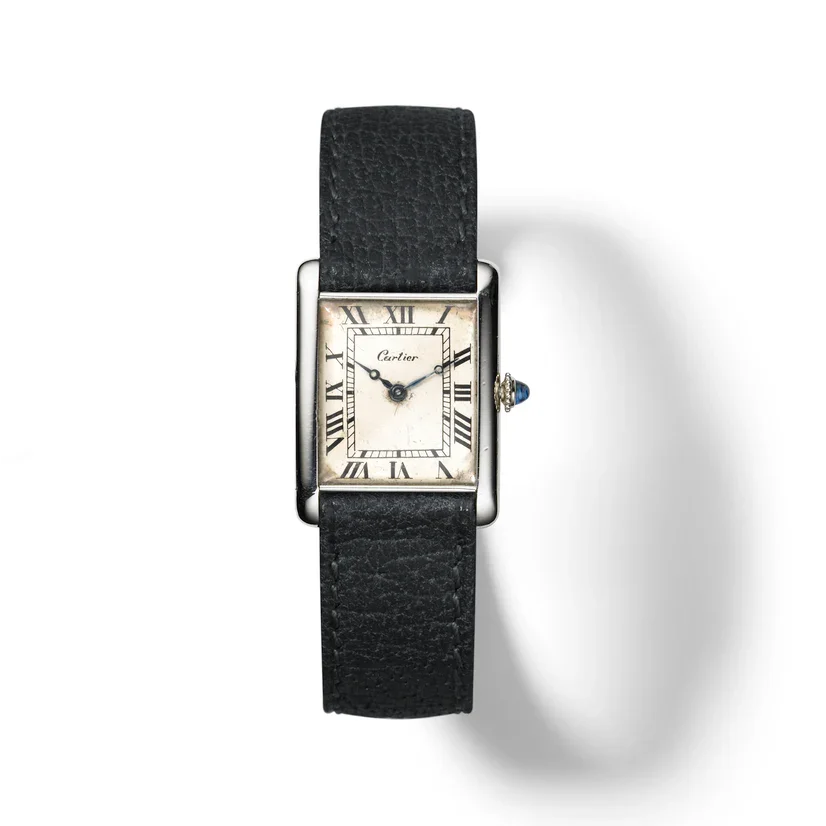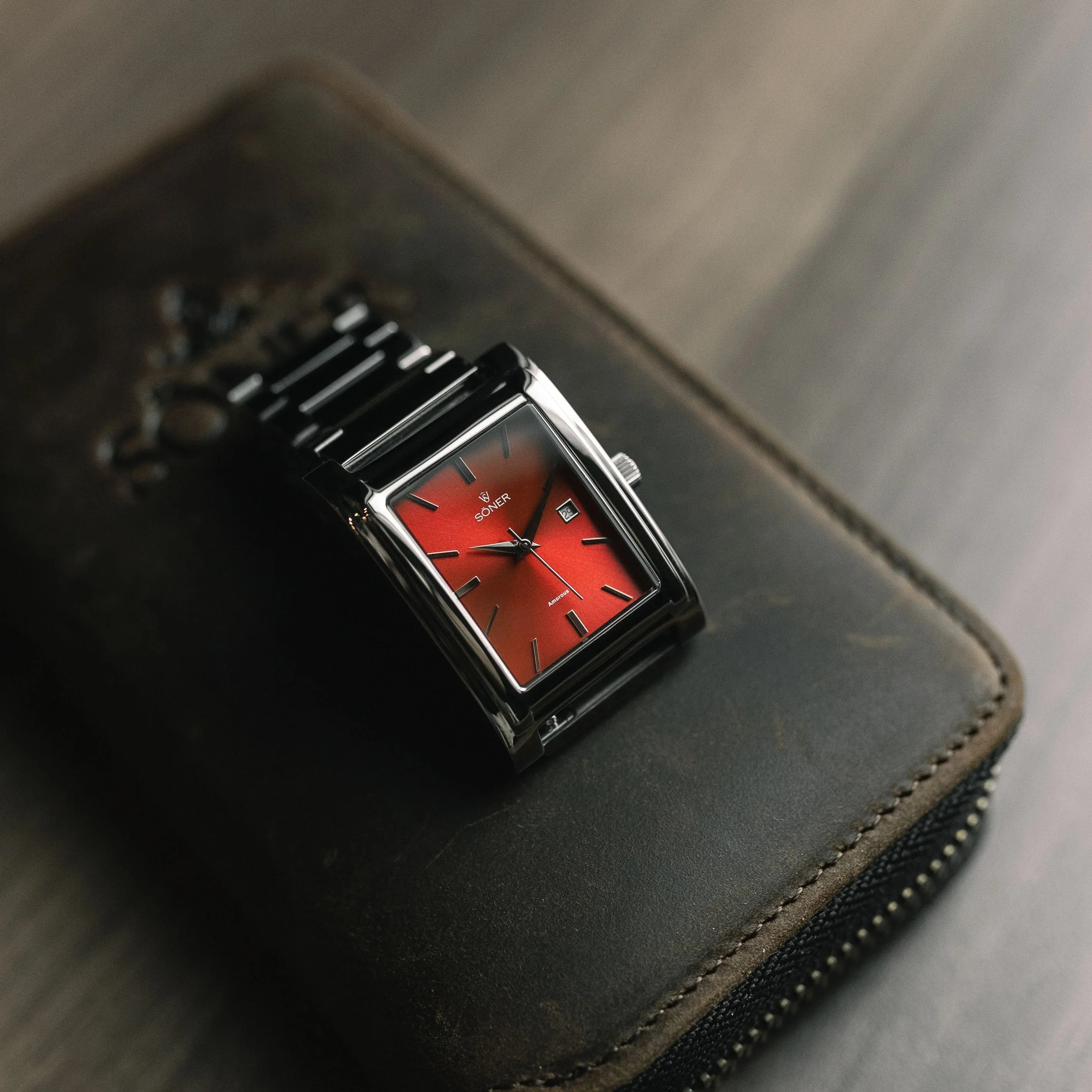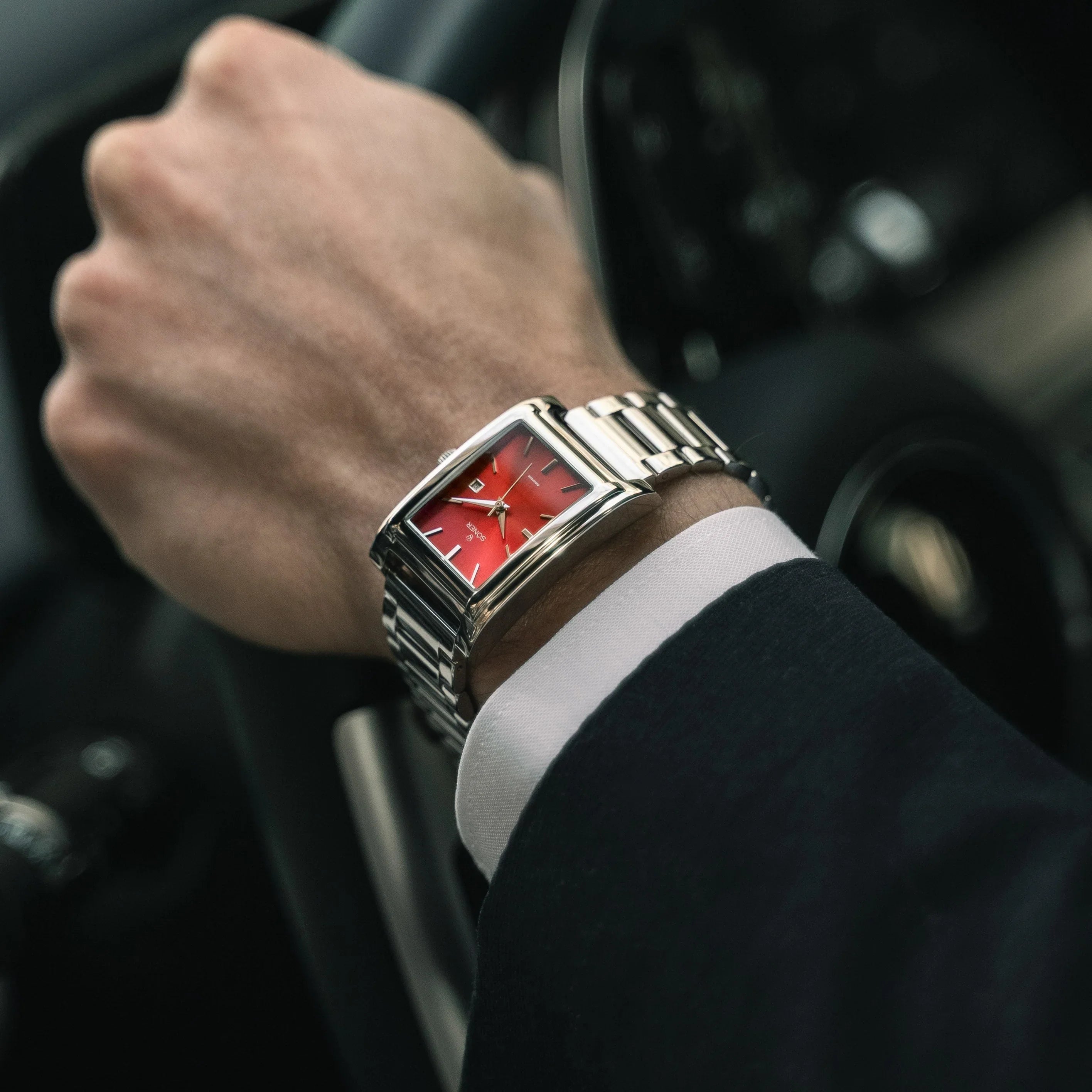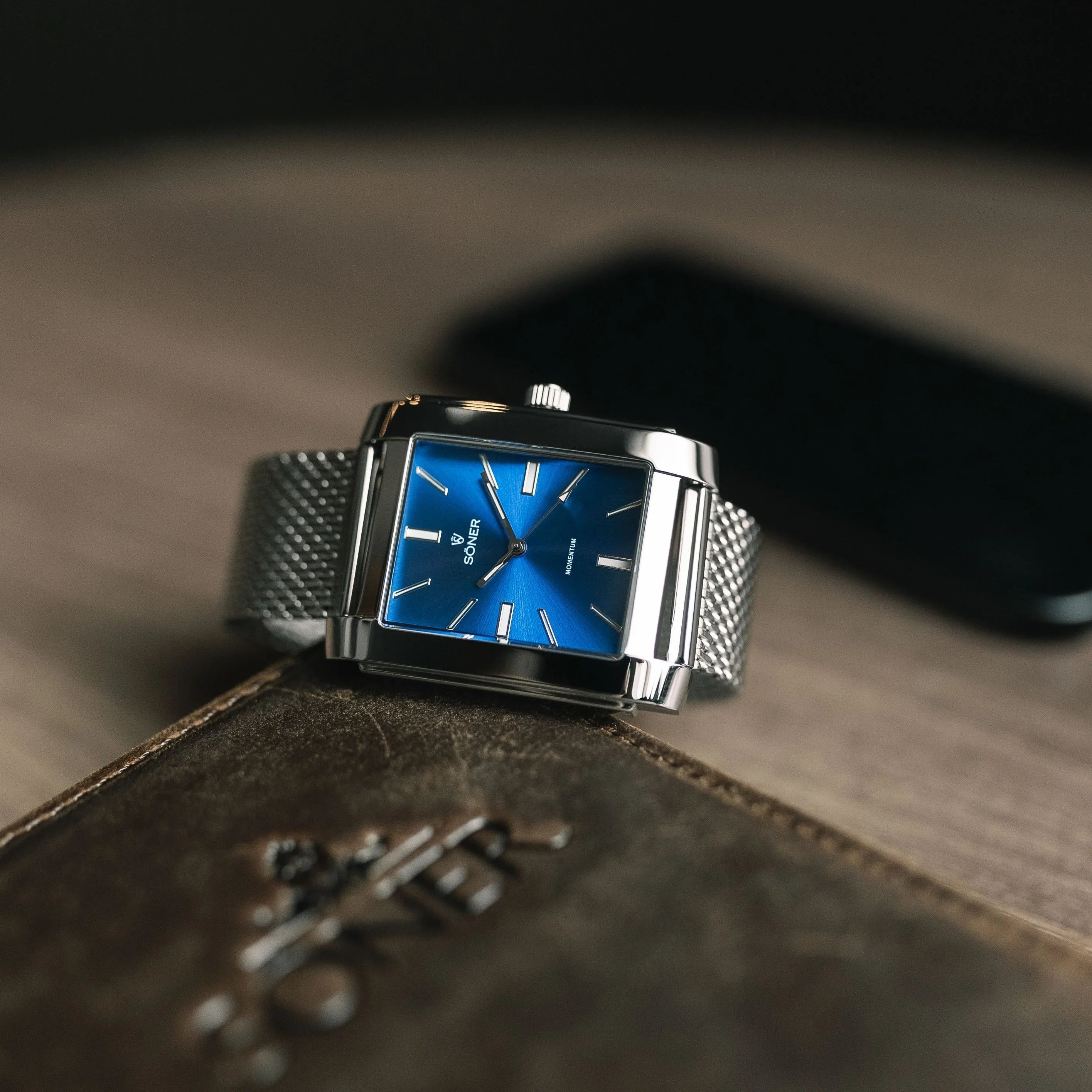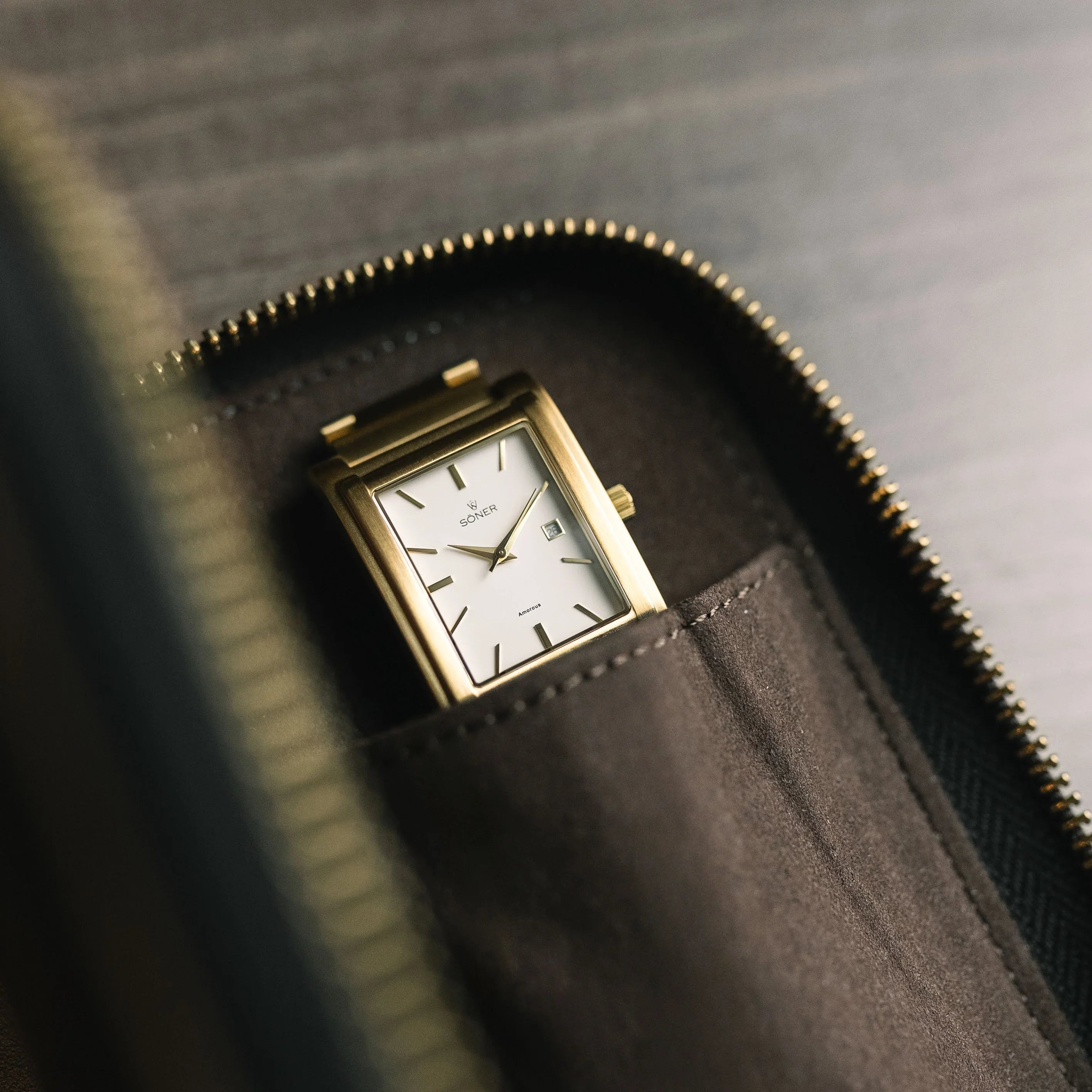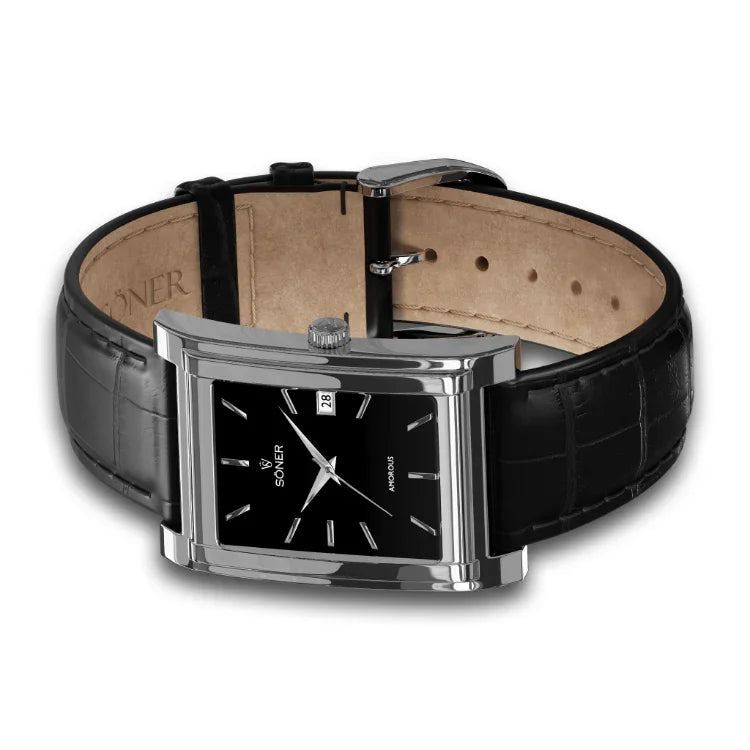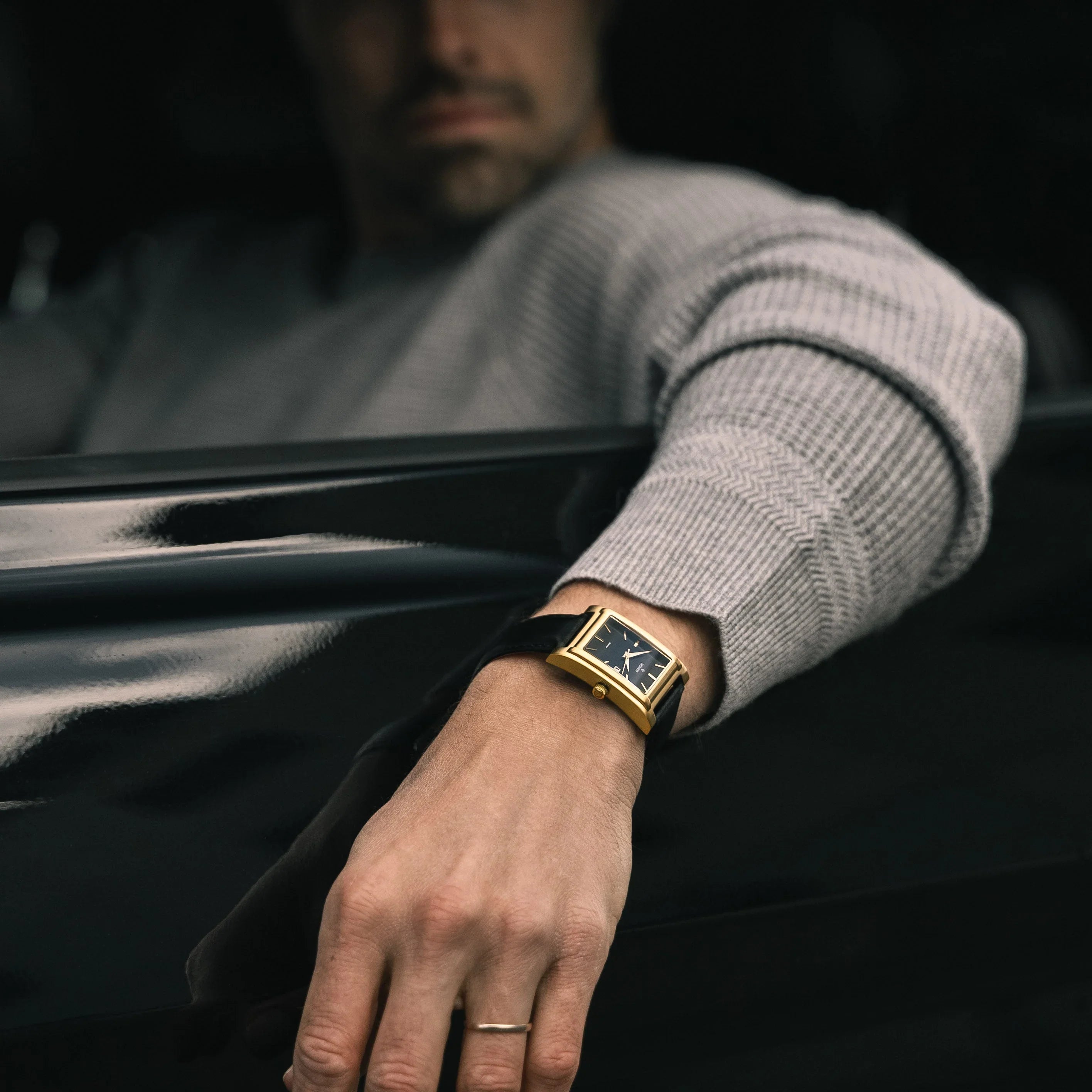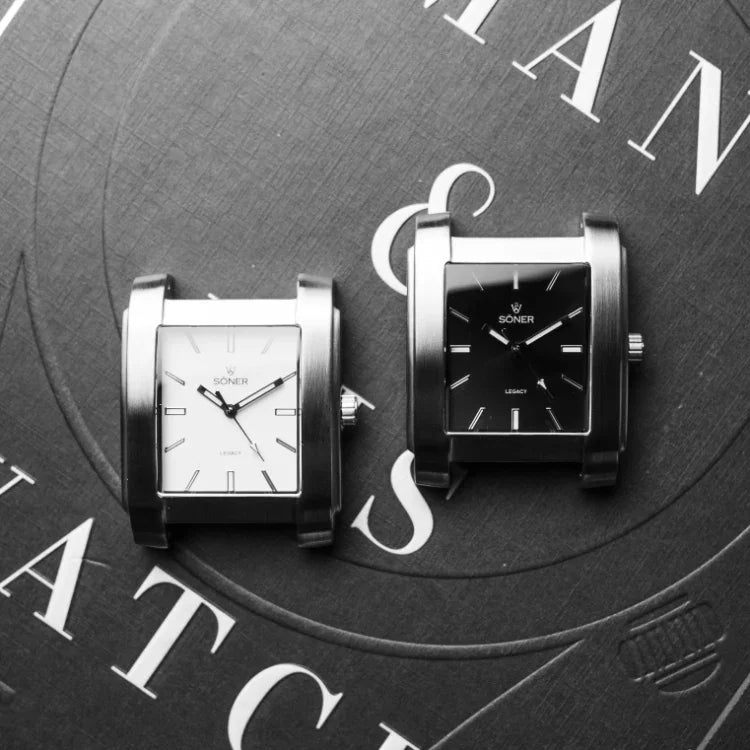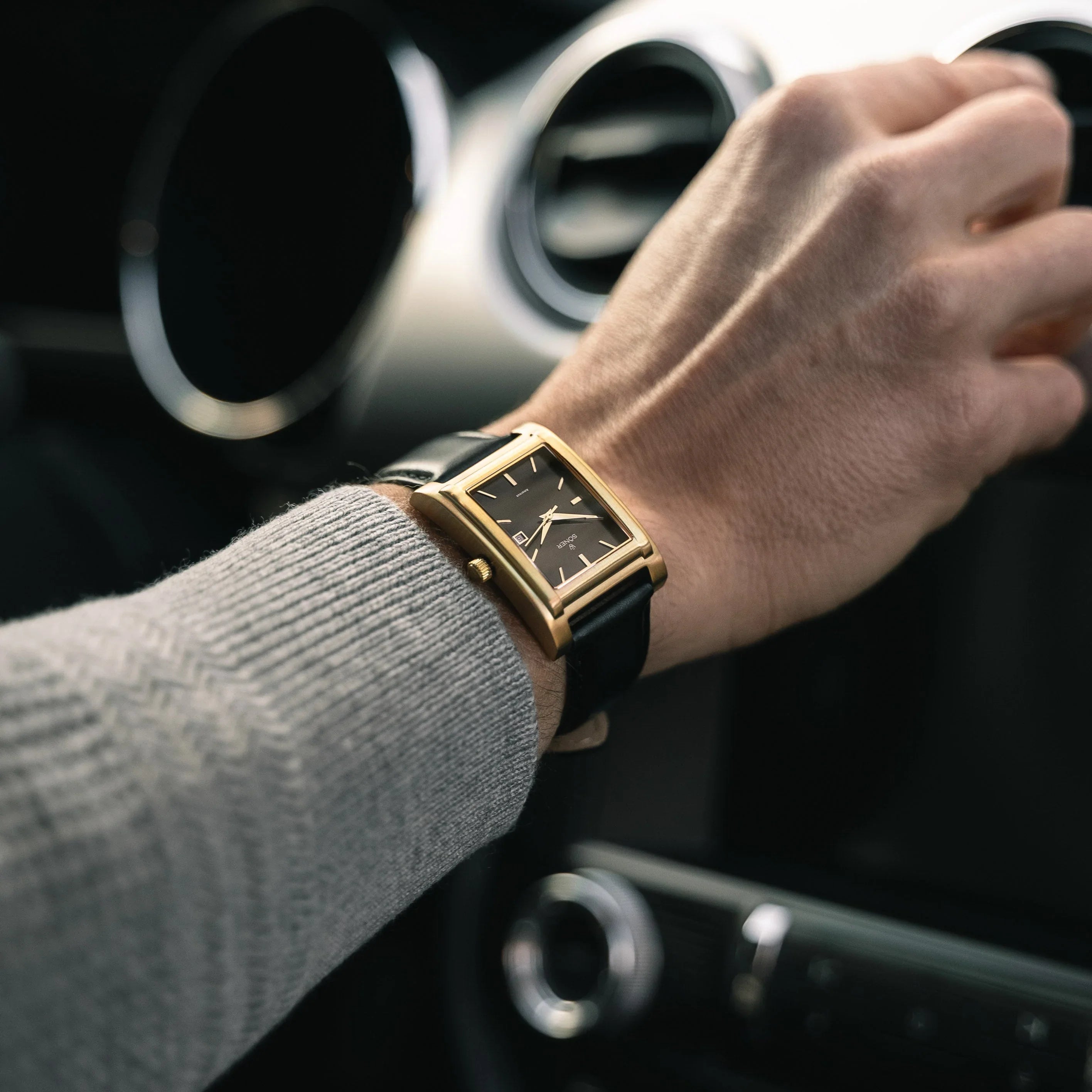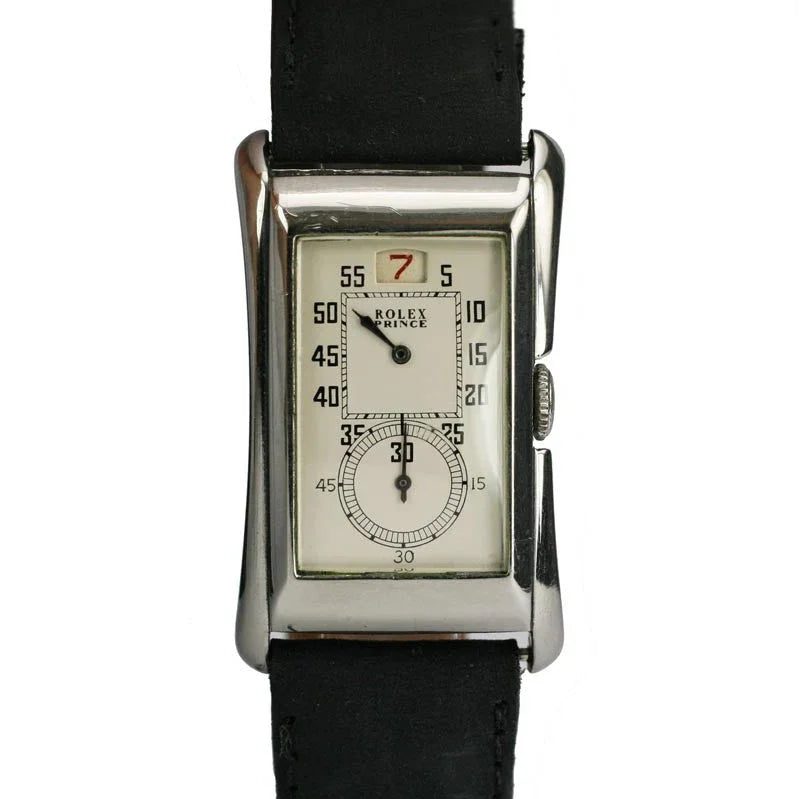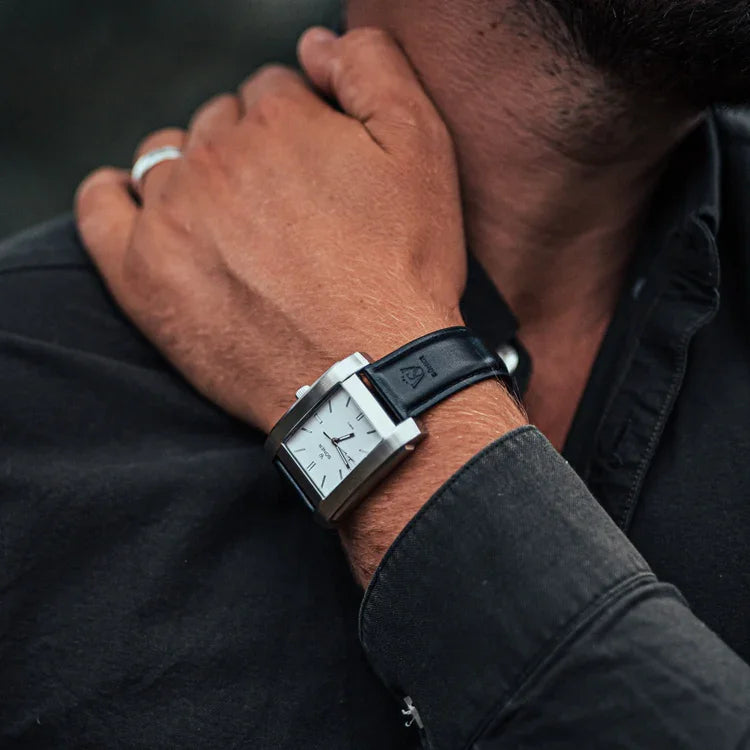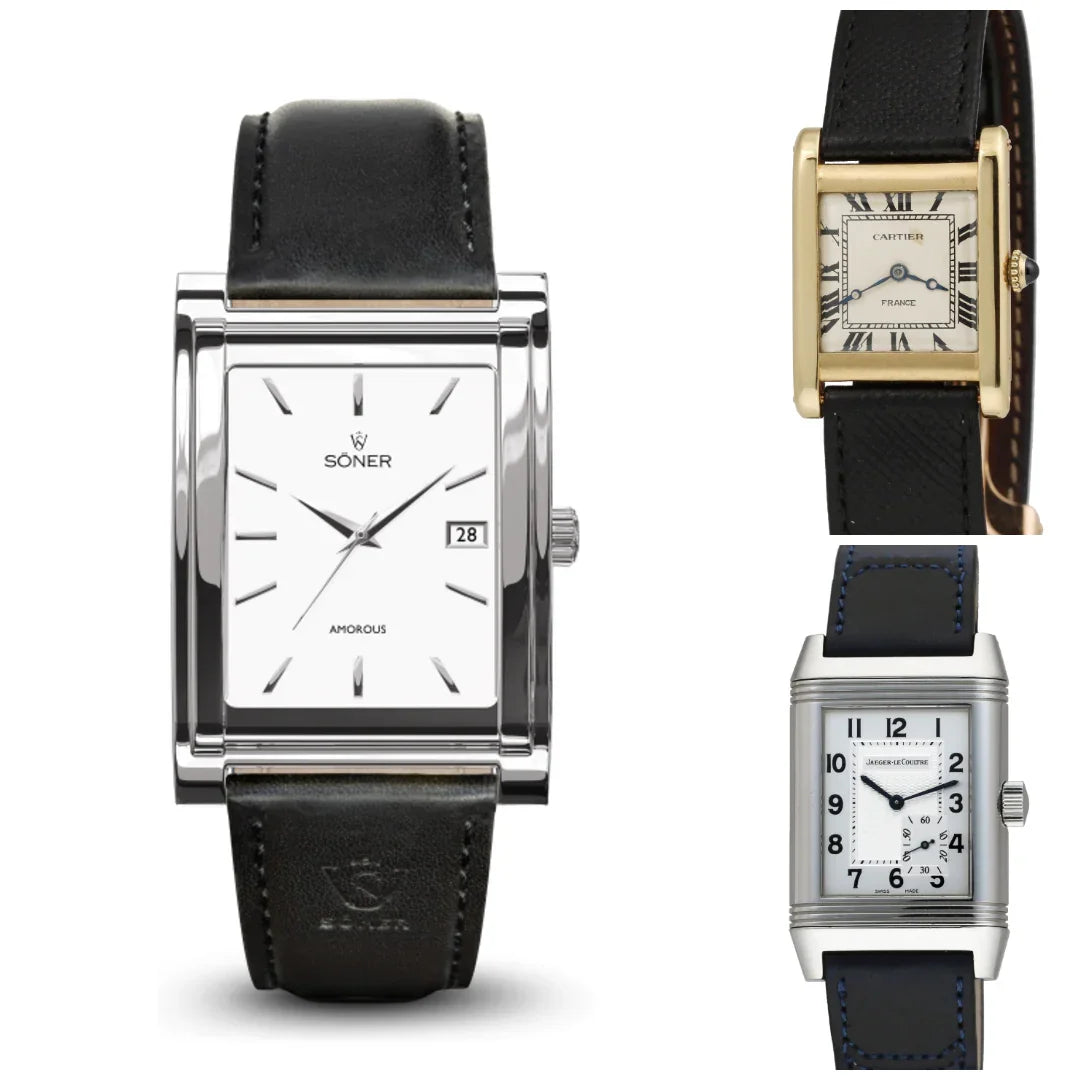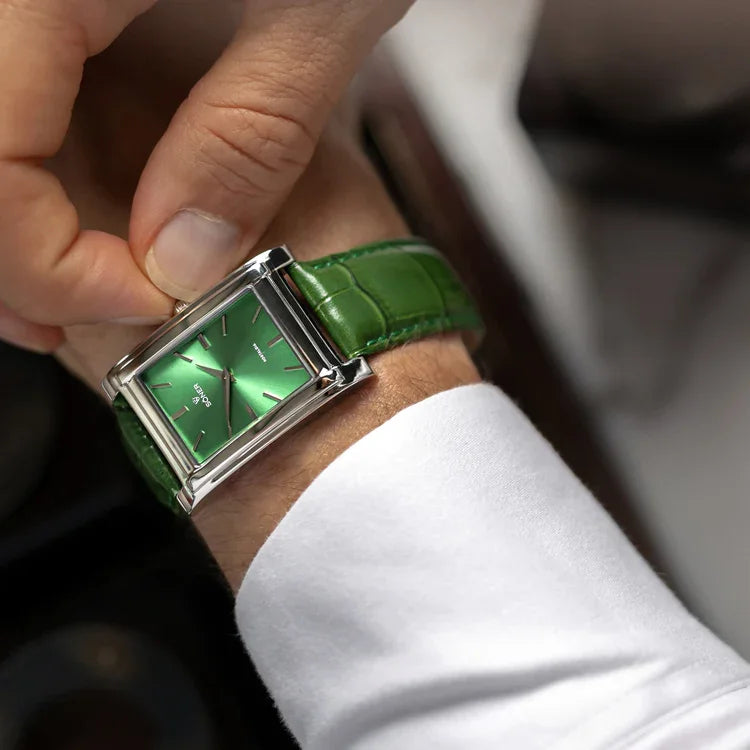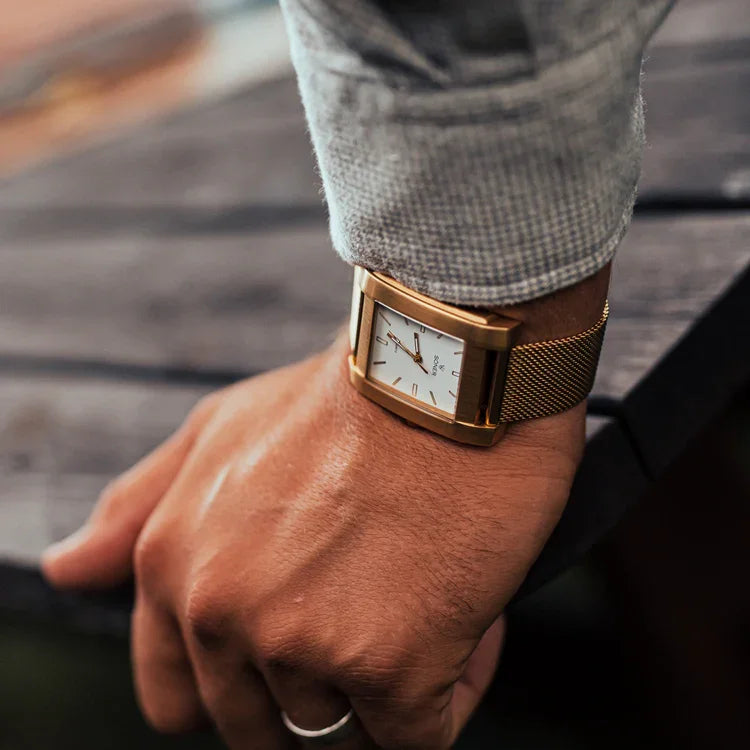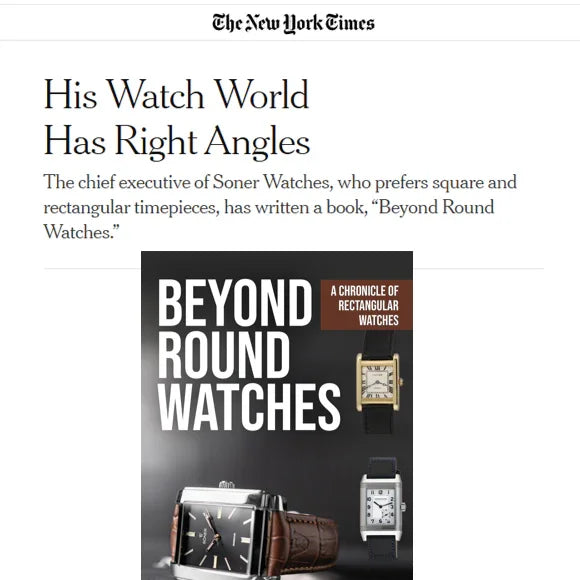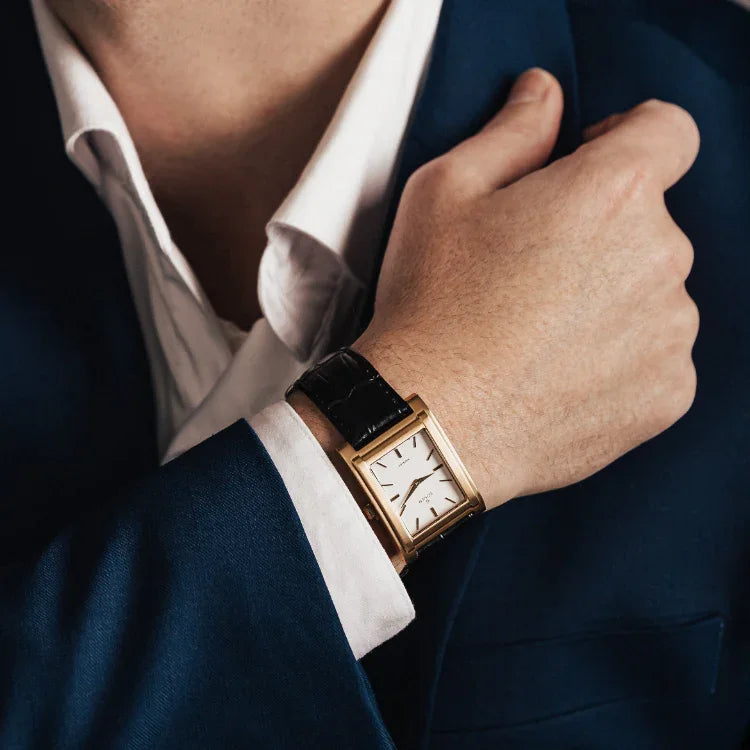Key Takeaways
Table of Contents
Quartz Vs Automatic Watch
When we talk about the heart of a watch, we’re mostly discussing its movement. This is the intricate mechanism that makes the hands sweep across the dial, marking the passage of time. There are two types of ways to power a watch: quartz and mechanical. An automatic watch is a type of mechanical watch. All automatic watches are mechanical but not all mechanical watches are automatic. But what exactly do these terms mean, and how do they differ?
Quartz watches operate using a small battery and a piece of quartz crystal. When the battery sends electricity through the crystal, it vibrates at a constant frequency which keeps time so precisely that seconds rarely slip unnoticed. This brilliant piece of engineering revolutionized the industry in the late 20th century, making accuracy affordable and hassle-free.
On the flip side, the automatic watch doesn’t depend on a battery - it uses an internal mainspring, which is wound by the natural movements of your wrist. As you walk, type or gesticulate, a tiny rotor spins, keeping the watch wound.
An automatic’s power reserve thus only lasts as long as you keep moving. If you keep it in a static position for a while, it will go to sleep after about a day or two of inactivity. Watch enthusiasts often refer to this as the “soul” of the timepiece.
What Is Better Between Quartz Watch Vs Automatic Watch Movement?
There’s not a one-size-fits-all answer to this question. When it comes to deciding what’s better between a quartz and an automatic, one realizes it's more a matter of
- Use case - If you want punctuality for meetings, workouts, or critical missions, quartz is your ally
- Budget - Quartz watches are typically less expensive, making them great for first-time buyers or backup watches.
- Personal preference
- Style and Performance - Automatics usually have very intricate designs and are heavier. Quartz, on the other hand, is simple, light and modern.
- Maintenance - Quartz watches require periodic battery changes but minimal upkeep. Automatic requires servicing every three to ten years.
Overall, I would say Quartz offers predictability and convenience while automatic rewards you with heritage and beauty.
How Does Quartz Compare To Automatic In Performance?
How does quartz measure up to automatic?
- Accuracy: Quartz watches are precise to the order of +/-15 seconds per month. Automatics can vary by up to several seconds per day depending on care and conditions in which they are kept.
- Reliability: Quartz watches keep ticking until its battery dies out. Automatic performance may drop if unworn or left unserviced.
- Environment: If you’re a fan of walking long distances, running or braving harsh settings, quartz gets the nod for shock resistance and resilience.
How Does The Accuracy Of Quartz Watches Compare To Automatic Watches?
Why is there such a massive accuracy gap between the two?
- The Quartz Crystal: Quartz crystals vibrate at an exact frequency of 32,768 Hz when electrified. This divides time into tiny reliable increments. This frequency is dictated by the crystal’s physical properties and is highly resistant to change. The electronic circuits count these oscillations with extreme precision.
- The Mechanical Balance: An automatic watch relies on the oscillation of a physical balance wheel and hairspring. Typically, this amounts to just about 4 Hz or just about 28,800 vibrations per hour. Moreover, these oscillations are affected by gravity, temperature changes, lubricant viscosity changes, magnetic fields, minor shocks, and mainspring torque variations as it unwinds.

In the domain of fine watchmaking, a deviation of a few seconds per day is accepted for automatics. Many view it as a badge of craftsmanship. Daily performance varies greatly in automatic watches. All high end models, especially those that are COSC-certified, are built to minimize daily variation and ensure exceptional timekeeping accuracy.
Still Torn Between Quartz and Automatic?
Whether you crave pinpoint accuracy or timeless craftsmanship, our guide helps you choose the movement that fits your style, budget, and lifestyle.
Find Your Perfect Rectangular Watch MovementWhich Lasts Longer Between Automatic Vs Quartz?
This is a fascinating question because it can mean different things to different people. Are we talking about the lifespan of the components, the watch as a whole, or its ability to be passed down through generations? Let’s breakdown the longevity of each:
The typical life expectancy of a quartz watch can be quite long, often spanning decades. The main component that needs regular attention is the battery, which usually lasts between two to five years. Beyond the battery, electronic components and stepping motors are designed to be durable.
However, like all electronics, they do have a finite lifespan. If a crucial electronic component fails after many years of use, it can sometimes be difficult or costly to replace, especially for older or less common movements, as parts might no longer be manufactured. While a quartz watch can last a very long time, its end of life often comes when a critical electronic part fails and is not economically viable to repair. Maintenance for a quartz watch is generally low, mostly consisting of battery replacements and occasional seal checks.
A properly built automatic watch, with proper care and periodic servicing can, theoretically, last indefinitely. Why? Because every single component is mechanical. The gears, springs and jewels that make up its build are all designed to be cleaned, lubricated, repaired or replaced. Think of it like a classic car that requires regular tune-ups and occasional part replacements, but with that decent care, can keep running for decades.
Why Are Automatic Watches More Expensive Than Quartz?
Why would a watch that is less accurate cost significantly less than one that’s spot-on?
The primary reason for the higher cost of automatic watches is the sheer craftsmanship and engineering involved in their production. An automatic movement can contain anywhere from 100 to 500 individual components which all play specific and very important roles.
When assessing the price of automatic watches, it is important you consider the following key aspects:
- Hundreds of tiny parts - Each component, often smaller than a grain of rice, must be precisely cut, polished, and fitted into the build.
- Manual Assembly - While some processes are automated, the final assembly and regulation of most quality automatic movements are still performed by highly skilled watchmakers.
- Intricate Design - The design process for an automatic movement is immensely complex, involving sophisticated engineering to ensure everything works harmoniously.
- Jewel Bearings - You’ll often hear about “jewel” in automatic movements (e.g., 25 jewels). These are tiny, synthetic rubies or sapphires used as bearings at pivot points to reduce friction and wear on metal parts, significantly increasing the movement’s lifespan.
- Finishing- many high-end automatic movements feature elaborate finishing techniques like Geneva Stripes, Circular Graining and Beveling of Edges. These techniques sound fancy but aren’t just for show.
Beyond the tangible costs of production, several other factors equally contribute to the higher price tag of automatic watches. They include:
- Prestige and Heritage: Mechanical watchmaking boasts a rich history spanning centuries. Brands like Patek Phillippe, Rolex, Omega and others have built their reputations on this heritage, developing iconic movements and designs.
- Brand Markup: Like luxury goods in any industry, established watch brands often have a significant brand markup. This covers not just the cost of production, but also extensive marketing, research and development, retail presence, and power of the brand’s name and reputation. A Rolex, for example, isn't just expensive because of its materials and movement; it is expensive because it is a Rolex.
- Exclusivity and Limited Production: Many high-end automatic watches are produced in more limited quantities compared to mass-produced quartz watches. This exclusivity and scarcity can drive up demand and consequently, price.
Overall, all of the above points make automatic watches a more significant investment as compared to quartz watches.
Ready to Pick the Right Watch for You?
From durability and maintenance to design and heritage, discover which timepiece—quartz or automatic—belongs on your wrist.
Compare Quartz & Automatic NowAre Quartz Watches More Accurate Than Automatic?
As a general rule, quartz watches are more accurate than their automatic counterparts when it comes to daily timekeeping. A standard quartz watch will typically gain or lose only a few seconds per month. Even relatively inexpensive quartz movements often boast decent accuracy.
Automatic watches, while incredibly impressive for purely mechanical devices, are inherently susceptible to various influences that affect their accuracy. A well-regulated automatic chronometer might be accurate to within -4 to +6 seconds per day, which translates to a potential deviation of several minutes per month.
Consider scenarios where split second accuracy and unwavering reliability are paramount:
- Sports Timing: in professional sports, where races are won or lost by milliseconds, quartz timing devices are universally preferred for their superior precision. Imagine a track and field event using an automatic watch - the inconsistencies would be unmanageable.
- Navigation and Aviation: Pilots and navigators often rely on highly accurate time for critical calculation. While GPS is now dominant, the underlying principles of precise time synchronization often depend on atomic clocks, which are the ultimate form of quartz-based accuracy. Quartz movements are preferred in aviation watches for their reliability, aligning with FAA-recommended standards for cockpit instrumentation.
- Tactical and Military Uses: For military personnel on the field, a watch needs to be rugged, reliable, and precise, without need for winding or sensitivity to shocks. Quartz watches fill this gap by providing unwavering precision even in demanding environments. Field watches, designed for durability and legibility in rough conditions, very often make use of quartz movements.
We realize that while automatic watches beautifully express mechanical art, you better turn to a quartz watch if your primary need is absolute accuracy in every given moment, and especially in high-stakes or demanding situations.
Pros And Cons Of Quartz And Automatic Watches
To help you make your decision clearer, here is a side-by-side comparison:
| Feature | Quartz Watches | Automatic Watches |
|---|---|---|
| Accuracy | Unaffected by the wearer's movement. | Affected by position, temperature and activity. |
| Durability/Robustness | Fewer moving parts, more shock resistant. | More sensitive. Requires more careful handling. |
| Maintenance | Low maintenance, primarily battery changes every 2-5 years | Requires periodic professional servicing every 5-10 years. |
| Cost | Generally more affordable to purchase. | More expensive due to complex craftsmanship |
| Power Source | Battery powered, consistent power supply. | Will stop if not worn regularly or wound manually. |

Quartz watches excel in everyday scenarios, where accuracy and low maintenance are priorities. So whether you want to wear it to work, for sports, for kayaking or hiking, it is your ideal go-to type of timepiece. Conversely, automatic watches shine as collector’s items or fashion statements that showcase artistry and craftsmanship. They are designed to be passed down through generations. Our Söner online store provides both quartz and automatic watches.
Make the Smart Choice for Your Next Timepiece
Don’t guess—learn the pros, cons, and real-life performance of quartz vs automatic watches before you buy.
Discover Which Movement WinsIs Quartz More Durable Than Automatic?
In terms of durability, quartz watches often have an edge due to their simpler design and fewer moving parts. They tend to be more shock resistant and weatherproofed, making them ideal for active lifestyles.
The simplicity of quartz movements contributes significantly to their durability. With fewer components that can fail over time, they stand up well against wear and tear.
Are Military Watches Quartz Or Automatic?
When it comes to military applications, durability and reliability are non-negotiables. Many military watches lean toward quartz movements because they are reliable and robust even in the most challenging situations.
Even field watches which are designed for combat settings often feature quartz movements because they can withstand extreme environmental conditions while providing precise timekeeping when it matters most.
What Watch Movement Is Best For You?
The choice between a quartz or automatic watch boils down to your budget, personal preference and lifestyle needs.
- Do you need pinpoint accuracy? Quartz
- Is craftsmanship your priority? Automatic
- Are you on a budget? Quartz
- Do you want your wrist to make a statement? Automatic
Athletes, travellers, or budget-conscious buyers should choose quartz.
Collectors, professionals, or those seeking heirlooms should choose an automatic.


